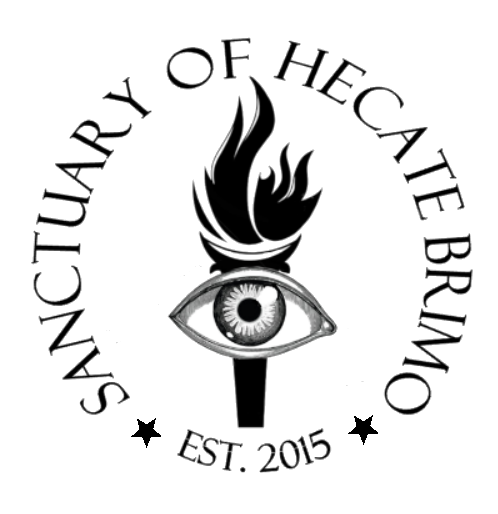The spiritual journey is a vast and diverse landscape, offering countless paths for seekers to explore and connect with the divine. Buddhism and the worship of Hecate, the powerful Greek goddess, may seem disparate at first glance. However, upon closer examination, intriguing parallels, and connections can be found between these two traditions. This article delves into the relationship between following Hecate and being Buddhist, shedding light on the shared values, practices, and perspectives that can enhance one's spiritual path.
In both Buddhism and Hecate worship, there is a recognition and reverence for the divine feminine. While Buddhism is often associated with the teachings of the historical Buddha, Siddhartha Gautama, numerous female figures hold significant roles. For instance, the Bodhisattva Tara represents compassion and wisdom, embodying feminine qualities of nurturing and guidance.
Similarly, Hecate is a prominent goddess associated with the mysteries of the feminine divine. As the goddess of the crossroads, magic, and witchcraft, she embodies powerful aspects of femininity, including intuition, transformation, and independence. Following Hecate allows individuals to honor and connect with the divine feminine energy within themselves and in the world around them, complementing the Buddhist emphasis on balance and interconnectedness.
Buddhism teaches that life is marked by impermanence, and embracing this truth leads to liberation from suffering. The concept of impermanence aligns with Hecate's transformative nature. She is a goddess who guides individuals through transitions, symbolizing the constant change inherent in life's cycles. Worshiping Hecate encourages practitioners to embrace transformation and find solace in the ever-changing nature of existence.
Both Buddhism and Hecate worship emphasize the significance of mindfulness and ritual practices. Buddhist meditation cultivates mindfulness, fostering awareness and deepening one's connection to the present moment. Similarly, Hecate worship often involves ritual practices aimed at heightening consciousness, such as chanting, creating altars, and performing ceremonies during specific lunar phases.
By integrating mindfulness and ritual practices, followers of Hecate and Buddhists alike can develop a greater sense of spiritual awareness, cultivate inner peace, and forge a deeper connection with the divine.
Buddhism places great emphasis on ethical living and compassion toward all beings. The practice of following the Noble Eightfold Path, which includes principles such as Right Speech, Right Action, and Right Livelihood, guides individuals to lead virtuous lives and cultivate loving-kindness.
In a similar vein, Hecate worship encourages practitioners to embrace compassion and kindness. As a goddess associated with witchcraft and magic, Hecate's devotees often seek to manifest positive change and promote harmony in their lives and the world around them.
While Buddhism and Hecate worship emerge from different cultural and historical contexts, intriguing connections can be found when exploring their spiritual principles and practices. Both traditions offer pathways to personal transformation, the cultivation of mindfulness, and ethical living. By blending elements from Buddhism and Hecate worship, individuals can enrich their spiritual journey, drawing from the wisdom of these diverse traditions to deepen their understanding of the self, foster compassion, and nurture their connection with the divine.
Citations:
"Tara (Buddhism)." Encyclopaedia Britannica. Accessed June 21, 2023. [Link]
Davis, T. (2019). "The Polyvalence of Tara in Himalayan and Tibetan Buddhism." Religions, 10(8), 485. [Link]
Zohara, M. (2018). "Hekate and the Androgynous Soul." The Journal of the International Association for the Study of the Figure of the Witch, 1(1), 92-113.
Batchelor, S. (2004). Buddhism Without Beliefs: A Contemporary Guide to Awakening. Penguin.
Batchelor, S. (2012). After Buddhism: Rethinking the Dharma for a Secular Age. Yale University Press.










No comments
Post a Comment